AI-Based Locomotive Syndrome Detection Device

The concept of locomotive syndrome (LS) refers to reduced mobility due to impairment of the musculoskeletal system, which is a major contributor to the need for long-term care. A group of medical and technology researchers has developed a gait analysis device that uses AI to assess LS quickly and simply by just having older people walk a few meters in front of a camera.
Creating A Place and Role for Older People with Dementia through Multigenerational Exchanges
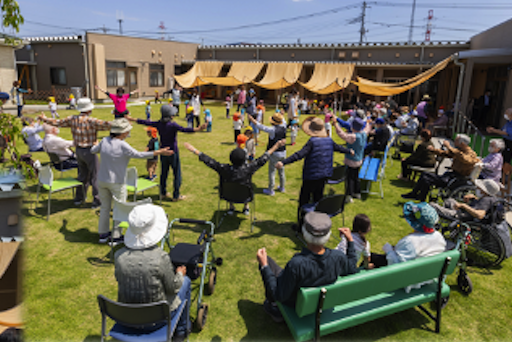
Rehab Home Ippo was established in 2011 as a small day care service for older people. Four years later, it combined that service with a small nursery school. That led to an important discovery: clients who, despite the staff’s best efforts, never smiled or engaged in activities suddenly lit up when they saw the children at the nursery. That realization triggered an innovative new approach to the company’s work: they decided to create a space where multigenerational exchanges could be carried out by combining the senior day care service, nursery school, and later a daycare for severely mentally and physically handicapped children in one facility.
Mobility Support Using Electric Carts to Improve the Health and Wellbeing of the Older People in the Community
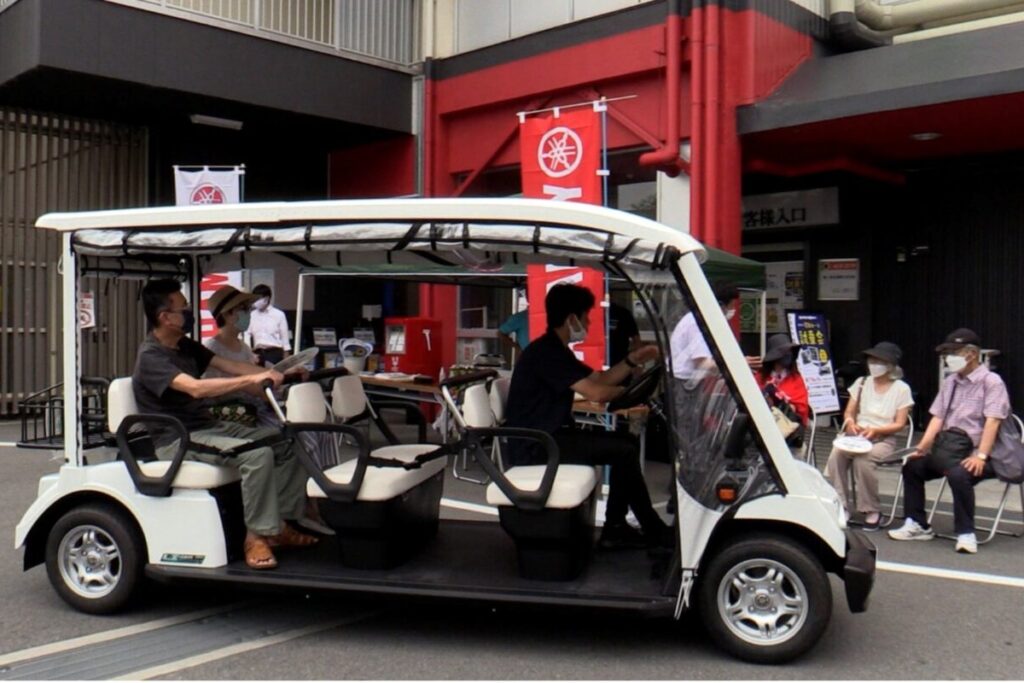
Mobility is crucial for older adults to live healthy, active, and rewarding lives. Research institutes at Chiba University and Nihon Fukushi University worked with Yamaha Motor Co. and several local governments to address this problem by introducing electric carts that could be used on public roads in the community. They introduced an operational model that is easy for older people to use and easy for governments to implement.
Project to Prevent Frailty, Locomotive Syndrome, and Dementia
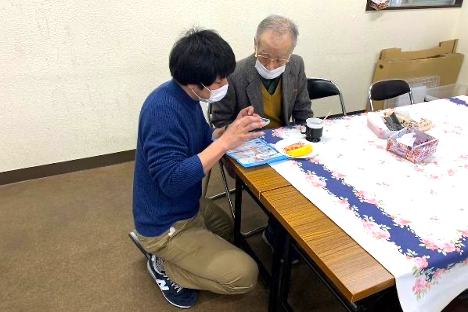
Launched in 2017 as an industry-government-academia project, this initiative offers activities that contribute to the extension of healthy life expectancy among residents of Kaizuka City, focusing on health checks, exercise classes, and volunteer training projects.
0084 Community Health Project—Using a Local Company’s Know-How to Promote a Healthier Community
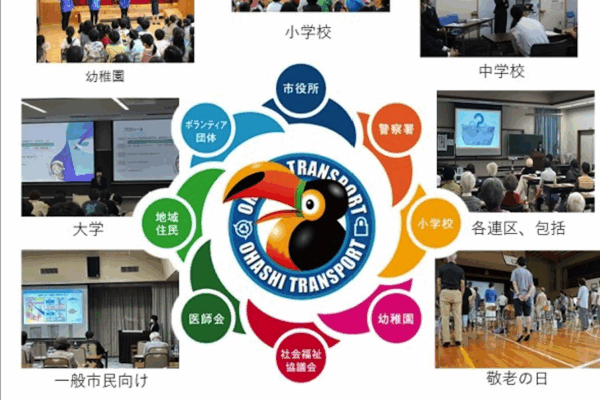
Ohashi Transport Co., a company with headquarters in Seto, had been carrying out in-house health management programs to maintain the mental and physical wellbeing of its employees as a means to improve each person’s vitality and productivity. They recognized that their experience could contribute to the promotion of health for their community, and so began working with the local government to implement a multi-pronged program focused on health education, exercise promotion, and social engagement.
Pattern Language for “Mutual Care”—A Thinking Aid for Those Caring for Older People
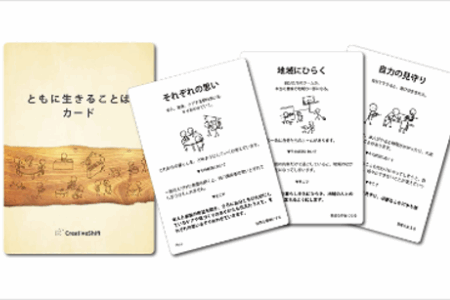
Keio University researchers developed a “thinking aid” for caregivers at eldercare facilities and at home to share better care practices. They developed a pattern language focused on the concept of mutual care, focusing on a relationship of “living together” rather than a relationship between “those who provide care and those who are cared for.”
MCS Care—A Science-Based Approach to Promote Self-Reliance
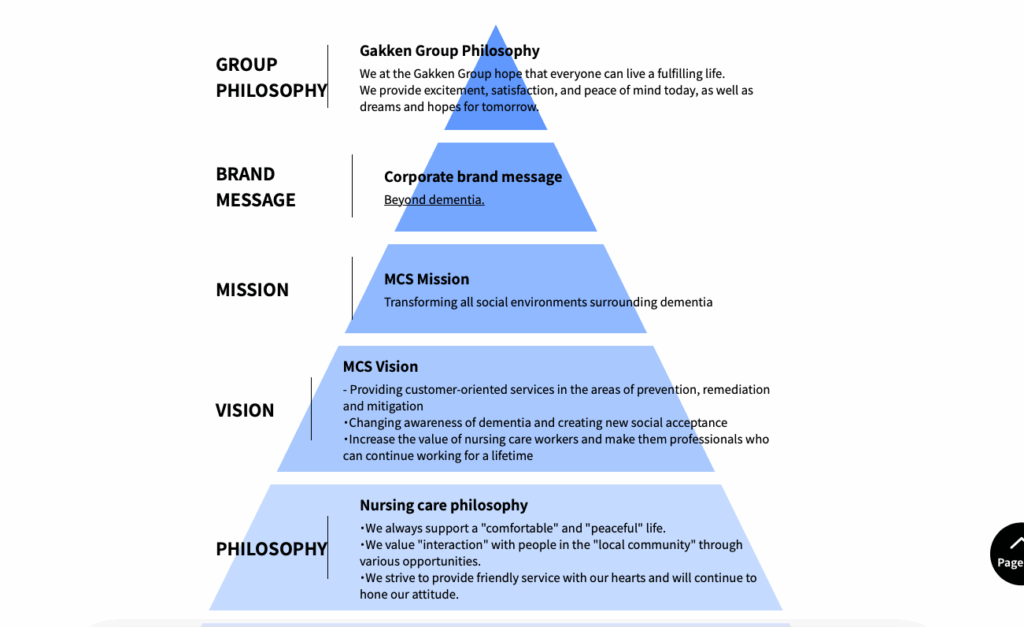
MCS operates hundreds of group homes and nursing homes in Japan and China. To improve their residents’ quality of life, MCS established an evidence-based system that focuses on a secondary cause of dementia, the deterioration of physical activity, and primarily consists of medically based adjustments to areas such as hydration, nutrition, exercise, oral function, posture, mobility, and medication.
Kaigo Café—Japan’s Largest Informal Care Professional Network
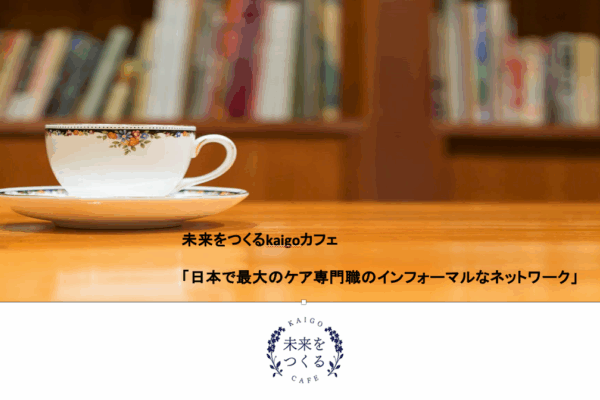
Kaigo Café is a professional, multidisciplinary, offline and online network that has been carrying out grassroots activities throughout Japan since 2012 that allow participants from all aspects of the medical and nursing care industry—regardless of their credentials or status—to talk freely and empower one another to continuously improve elder care.
Connecting Education and Welfare through TANO
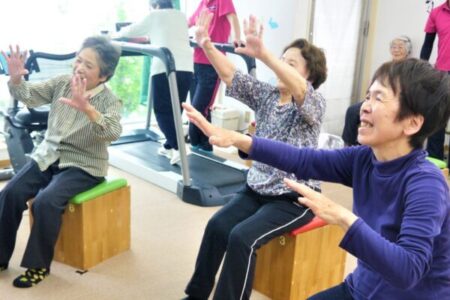
TANO is a non-contact gamification system that promotes movement and social engagement for health promotion and rehabilitation for older people. It is being used in care facilities in Japan and overseas. The initiative seeks to connect education and welfare, promote society-wide cooperation through industry-government-academia partnerships, and create an environment in which children and students can develop an awareness of social issues from an early stage.
NCGG Home Exercise Program for Older People

In response to COVID, a multidisciplinary team of physicians, therapists, and dieticians created an evidence-based Home Exercise Program for Older People (HEPOP), which was published one month later as a booklet and online, offering a menu of exercises and activities that can be easily practiced at home. It was integrated into the Ministry of Health’s Online Kayoinoba (gathering place) app.

